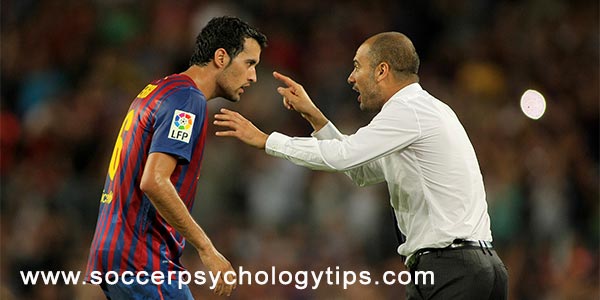
Positive Communication Leads To Team Courage
What qualities characterize an effective leader or captain?
If you were to list the qualities of an effective team captain, you would probably include:
- Having positive communication skills with teammates and coaches
- Putting the goals of the team ahead of personal goals
- Lifting teammates up instead of putting teammates down
- Being a steadying force and positive example for teammates
- Understanding the needs and concerns of the team
Many times, our idea of how a team captain should act doesn’t match the attitude or behaviors of the team’s captain.
See if you can identify with this experience. At the beginning of the season, your team selects a captain.
In previous years, this player worked hard and exhibited some positive leadership skills. This player was a well-respected member of the team and a sound candidate for team captain.
Unfortunately, things changed when this player was chosen as captain. Instead of working hard, the captain started to slack off while getting on other teammates for lack of effort.
Positive communication was replaced with talking about teammates behind their backs. The captain pointed fingers at other players for losses while shrugging off personal responsibility.
The effect of a demeaning or power-hungry captain is divisiveness. Without effective leadership, team cohesion suffers, as well as the overall effort of the team. Players become angry with bossy captains, and the performance of the group declines.
The problem is not with the team but the leadership style of the captain. Instead of fostering team unity, the dictatorial leadership style of the captain split team members into cliques.
The key to being a positive and effective team leader is putting the team first. A good leader brings the team closer together around a common objective.
Understanding your role as a team leader can help a team achieve its ultimate goal while assisting individual players to reach their potential
A leader is a position of honor where you care about each team member as well as the team collectively.
Being an Effective Team Leader
An effective leader is a good communicator. Dialogue is more conducive to team success than a monologue.
Try scheduling some informal meetings with your team. Listen to the concerns and suggestions of your teammates and present those issues to your coach.
Also, you can learn how to become a better leader by reading articles and working to develop effective leadership skills.
Related Sports Psychology Articles
- How to Be a Leader on Your Soccer Team
- How to Build an Inspiring Soccer Legacy
- Embracing the “Live and Learn” Mentality?
- Subscribe to The Sports Psychology Podcast on iTunes
- Subscribe to The Sports Psychology Podcast on Spotify
Download a free sports psychology report to improve your mental game!
Learn more about our one-on-one mental game coaching.
Get the Mental Edge – With Mental Training

Do you perform well in practice, but find yourself under-performing in games? Do you doubt your skills and second-guess yourself under pressure? If so, mental training will help you reach your goals in soccer. Many soccer players have the skill but are held back by low confidence and lack of pregame mental preparation!
You can get expert mental coaching with us from anywhere. Meet with us via Zoom, Skype, FaceTime or phone call. With today’s video technology, we are able to connect with athletes and coaches all over the globe.
Call Us Today to Schedule Your Free 15-Minute Session.
Find Out How You Can Benefit From One-on-One Mental Coaching!
888-742-7225 | 407-909-1700
